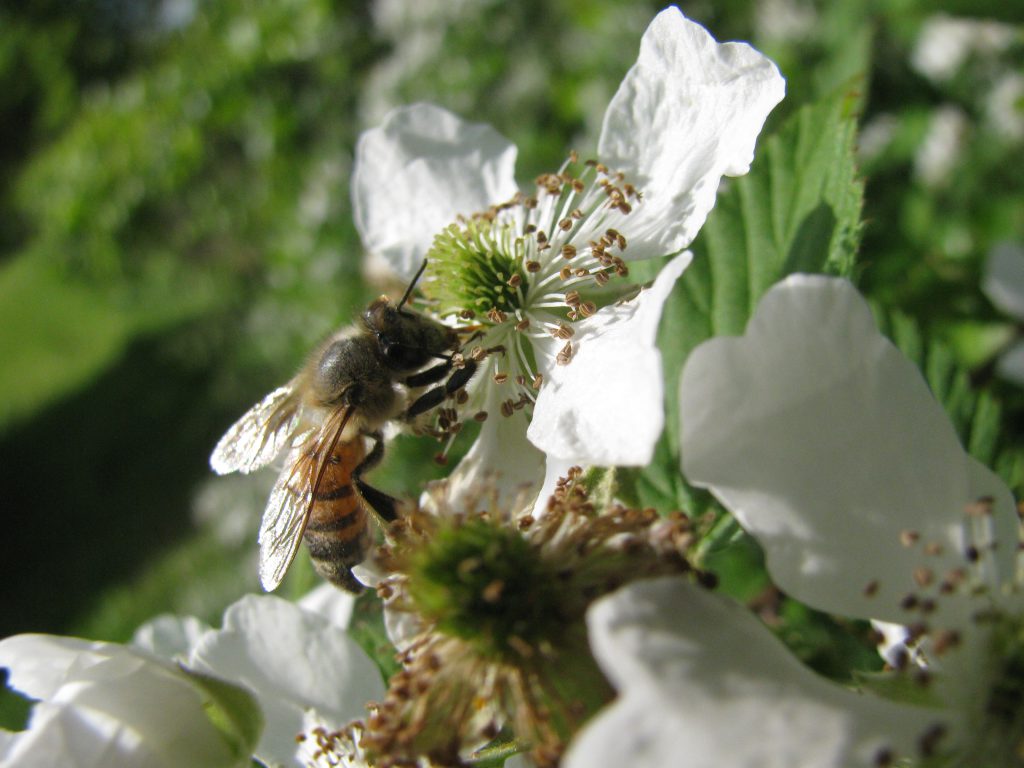Urban Environments Place Pathogen Pressure on Honey Bees, Especially Domesticated Ones

A SE Climate Science Center affiliated researcher, Steve Frank, a co-author on a paper, Urbanization Increases Pathogen Pressure on Feral and Managed Honey Bees, published November 4 in PLOS ONE, looked at whether urbanization affects the immune response and pathogen load of domesticated and feral colonies of bees. “We wanted to determine if the increased temperatures and impervious surface areas associated with urban environments have an effect on the number of pathogens bees are exposed to, and to the bees’ immune responses,” says Steve Frank, an associate professor of entomology at NC State.
Abstract
Given the role of infectious disease in global pollinator decline, there is a need to understand factors that shape pathogen susceptibility and transmission in bees. Here we ask how urbanization affects the immune response and pathogen load of feral and managed colonies of honey bees (Apis mellifera Linnaeus), the predominant economically important pollinator worldwide. Using quantitative real-time PCR, we measured expression of 4 immune genes and relative abundance of 10 honey bee pathogens. We also measured worker survival in a laboratory bioassay. We found that pathogen pressure on honey bees increased with urbanization and management, and the probability of worker survival declined 3-fold along our urbanization gradient. The effect of management on pathogens appears to be mediated by immunity, with feral bees expressing immune genes at nearly twice the levels of managed bees following an immune challenge. The effect of urbanization, however, was not linked with immunity; instead, urbanization may favor viability and transmission of some disease agents. Feral colonies, with lower disease burdens and stronger immune responses, may illuminate ways to improve honey bee management. The previously unexamined effects of urbanization on honey-bee disease are concerning, suggesting that urban areas may favor problematic diseases of pollinators.
This research was partially funded by these two SE CSC projects:
• Tree Eaters: Predicting the response of herbivores to the integrated effects of urban and global change
• Integrating the Effects of Global and Local Climate Change on Wildlife in North America
NC State University News Office press release
